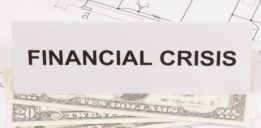San Francisco’s Housing Slowdown Indicates a Possible Economic Depression
Visitors and residents of San Francisco cannot avoid stumbling into new construction projects. What were once large parking lots have now become luxurious buildings. Three counties alone in the Bay area are posting an average home (often a small apartment) exceeding $1.0 million. But, such a housing market stands on weak foundations. All it will take is a dose of realism in tech sector valuations on Wall Street to trigger a new economic depression.
Recent data revealed three counties now have average housing prices above $1.0 million. The housing market is allegedly strong. But the unaffordable prices are already a problem, which can only worsen over time. Rents and real estate prices, apparently, are not showing any sign of dropping anytime soon. But they remain vulnerable to an economic slowdown.
Meanwhile, the numbers are starting to reflect gut impressions. The S&P Case-Shiller U.S. House Price Index for the month of April 2017 was up 0.3% compared to the previous month (based on the top 20 metropolitan areas, adjusted for seasonal variations). That’s half of the consensus estimate of +0.6%. (Source: “US home prices grow just 5.5 percent in April, missing analysts’ expectations,” CNBC, June 27, 2017.)
It’s the very exorbitance of San Francisco’s housing bubble that will eventually cause it to burst. Even employees at Google—Alphabet Inc (NASDAQ:GOOGL)—among the most generously remunerated and spoiled-with-perks employees in the world, can no longer afford to buy houses in San Francisco. (Source: “Even Google Employees Can No Longer Afford Housing In San Francisco,” Zero Hedge, June 17, 2017.)
The Housing Bubble Goes Deeper Than “Housing”
But what the Google employees’ housing dilemma and the U.S. housing bubble reveal about America goes far deeper. It comes down to a basic question: If even Google employees struggle to buy or rent a decent house, how could less fortunate Americans afford to? Meanwhile, the potential of a tech bubble bursting on Wall Street has increased.
The central bankers, whether in Europe or at the Federal Reserve, seem determined to raise rates. The impact of the rates is unknown because it has been so long since this has happened. Many of the recent investors—especially the tech ones—are often too young to remember what it was like to invest at a time when money was “expensive.”
The lucky ones have fueled the demand for expensive housing in San Francisco and a few other select locations (New York City, for example). They’re also the ones who park the Rolls-Royce and Bentley cars that cost as much as an average American’s home. If you’re not a tech millionaire, don’t feel bad. They are the ones that are playing with fire and risking their fortunes now. They have more to lose—all due proportions aside—than most Americans.
Silicon Valley Is Destined for a Deep Economic Depression
Silicon Valley and San Francisco appear destined for a special and deep kind of economic depression. The influx of high-tech companies from the tech/software sector into the San Francisco Bay Area over the past few decades has inflated two kinds of bubbles. One is more visible to the outside in the form of technology-sector products, companies, apps and their valuations. Less visible are the thousands of service sector providers and employees that cater to the whims and needs of the “techies.” The housing market is one of the results of this phenomenon.
It has driven the construction boom, which can be seen stretching from San Francisco to East Bay and beyond in new suburbs. Workers, driven out of the city by rising property prices, have moved eastward. The result is that rents and prices have risen in the new suburbs to almost the same levels as they have in San Francisco itself.
Some claim that property prices have seen a lull. But that might be temporary. A stock market crash, which will inevitably strike the high-flying tech sector, has the potential to accelerate the lull into a crash for housing prices as well. Californians have seen these cycles before.
In the 1850s, there was the gold rush. Then the first tech/dotcom industries led to the real estate boom of the late 1990s. The influx of income leads to a real estate boom and is accompanied by a massive influx of researchers, programmers, engineers, and now even auto workers—Tesla Inc (NASDAQ:TSLA)—who hope to get a well-paid job in Boomtown.
But, inevitably, Californians also know how such bubbles end. As high as the housing prices go, they crash just as quickly. But the bust is more painful than the boom as the euphoria of rising prices gets run over by the acidity of loss.
How many average employees can afford to pay rent? We’re talking about $40,000 a year in rent. The current tech rush will collapse. When the high-paid workers are laid off, they will no longer be high-paid. They won’t be paid, period. Rents will drop, bankrupting those who have bought into the real estate bubble.







